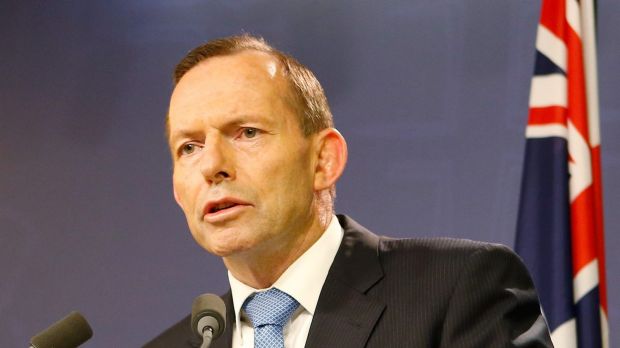
Prime Minister Tony Abbott: “The GST will not change in this term of Parliament…” Photo: Daniel Munoz
Prime Minister Tony Abbott has spelt out the political realities of expanding the GST, saying it would require a “measure of bipartisanship” and a “Parliamentary consensus”.
Cabinet minister Andrew Robb has become the first frontbencher to support backbench calls for an extension of the consumption tax, possibly onto fresh food and health and education services.
Mr Robb has told the Financial Review that there’s “general agreement” that the “broader the base” of the GST, “the better”. Currently the 10 per cent tax does not apply to fresh food, health and education or goods bought from overseas for less than $1000.

Andrew Robb: first Coalition frontbencher to support calls for extension of GST. Photo: Andrew Meares
Mr Abbott has promised there would be no changes to the 10 per cent GST and on Friday said it would not be going up in the government’s current term.
“The GST will not change in this term of Parliament and it cannot change in any term of Parliament without first of all the support of all the states and territories including the Labor states and territories and without effectively a Parliamentary consensus,” he told Sydney radio 2GB.
“As far as I am concerned what we should be on about is lower taxes not higher taxes. Lower, simpler, fairer taxes is the absolute objective that we are taking into this tax white paper process this year.”
Mr Abbott wished “good luck” to those advocating a better tax system. Several government backbenchers, led by country Victorian Liberal Dan Tehan, have called for a debate about extending the GST in the event the Coalition wins the next election.
New Assistant Treasurer Josh Frydenberg has also proposed lowering the threshold for goods bought online from abroad because retailers say it puts local retail jobs at a disadvantage. But Liberal party members oppose changing the threshold.
Labor outright opposes the GST. It campaigned against its introduction in 2000 because it is a “regressive” tax as it requires poorer people to pay the same tax rates on consumption as the wealthy.
Labor’s assistant treasury spokesman Andrew Leigh told reporters in Canberra that expanding the GST would have a “significant hit” on the “cost of living”.
But he appeared to leave the door open for supporting a lowered threshold for overseas goods saying “we would certainly want to see a case being made for changing the GST” although stressed that the Coalition should keep its promise not to change the tax.
